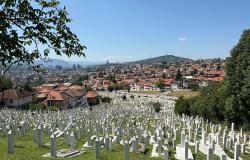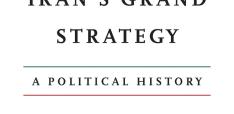Reintegrating the Western Balkans: Strategic Imperatives for EU and NATO

Eduard Vasilj argues that the stability and integration of the Western Balkans is not a peripheral concern, but a central strategic necessity for Europe.
Integrating the Western Balkans into the European framework is essential to prevent destabilisation and to strengthen Europe's geopolitical resilience. Without a credible and accelerated EU pathway, the region risks renewed instability, external interference, and political fragmentation – developments that would directly undermine European security and cohesion.
Historical and Geopolitical Context
Three decades after the wars that shattered the Western Balkans, the region remains a pivotal arena for European security and political stability. While some countries have made progress towards Euro-Atlantic integration, pervasive challenges—including ethnic divisions, weak governance, and external interference—continue to obstruct sustainable development.
The stakes extend beyond the Balkans themselves. The region’s instability poses a threat to broader European security, creating vulnerabilities that are increasingly exploited by powers seeking to undermine democratic governance and expand their strategic influence.
The Western Balkans’ complex history has left enduring scars. The ethnic conflicts of the 1990s, unresolved territorial disputes, and fragile state institutions continue to shape political dynamics. Bosnia and Herzegovina remains divided along ethnic lines, Kosovo’s independence is contested, and Serbia’s foreign policy balances East and West with deliberate ambiguity.
In the absence of rapid EU integration, rival powers have embedded themselves economically, politically, and culturally. Russia leverages energy dominance, political patronage, and disinformation to maintain influence, particularly in Serbia and Republika Srpska.
China’s Belt and Road Initiative has transformed the region’s infrastructure landscape, often under opaque financing conditions that create long-term dependencies. Türkiye combines investment with cultural diplomacy, rooted in its shared history, and positions itself as a regional economic and political partner.
These external actors bring a capacity for swift, centralised decision-making that the EU—bound by consensus and complex procedures—struggles to match. The resulting asymmetry allows competitors to define governance norms, trade alignments, and security partnerships that run counter to EU strategic interests. Europe’s delayed or fragmented approach has left a vacuum, which external actors are eager to fill. Without coherent EU and NATO strategies, the region risks drifting further into instability, undermining the transatlantic security order.
Political Imperatives for Integration
Effective governance and rule of law are prerequisites for integration. Corruption, weak judicial systems, and political clientelism impede the implementation of reforms and threaten the legitimacy of democratic institutions. The EU must maintain stringent conditionality while offering credible incentives that reward tangible progress.
Integration requires not only national reforms but also enhanced regional cooperation. Initiatives such as the Berlin Process have promoted infrastructure and connectivity, but political disputes often undermine implementation. Strengthening cross-border collaboration in trade, security, and infrastructure is essential to create a cohesive regional bloc capable of engaging with the EU on equal terms.
A resilient civil society and inclusive political processes reduce susceptibility to extremist narratives and external manipulation. Education, media freedom, and participatory governance are pivotal in fostering societal cohesion, mitigating ethnic tensions, and supporting the emergence of accountable leadership.
Economic Imperatives
The Western Balkans’ economic development is closely linked to political stability and EU integration. Persistent unemployment, low foreign investment, and inadequate infrastructure impede growth and fuel public disillusionment.
Strategic EU and transatlantic investment in infrastructure, energy, and digital connectivity enhances economic resilience. Projects must prioritize sustainability, regional integration, and alignment with EU standards to prevent dependency on external actors offering short-term gains at strategic cost.
Russia controls Serbia’s energy sector through the company NIS (Naftna industrija Srbije). In Bosnia and Herzegovina, the only two refineries in the country belong to the Russian corporation Zarubezhneft. China invested approximately €1.4 billion in Serbia in 2022 – roughly equivalent to the total investment volume of all 27 EU member states combined. In the first half of 2024, it became the largest foreign investor with €697.9 million. Türkiye controls the container and general cargo terminal at the Port of Bar (Montenegro) through the company Global Ports Holding Plc.
Integration into the EU’s single market facilitates access to capital, technology, and broader consumer bases. Removing trade barriers and harmonizing regulatory frameworks incentivizes reform and enhances competitiveness, providing both economic and political dividends.
The Western Balkans offers concrete strategic value: bringing 18 million people into the single market would expand the EU’s economic reach in Southeast Europe. The region also holds valuable resources, such as Serbia’s lithium and copper, Bosnia’s bauxite and iron ore, North Macedonia’s chromium and nickel, and Albania’s hydropower and oil reserves
Security Imperatives
The Western Balkans’ security environment remains fragile. Unresolved conflicts, organized crime, and political instability create vulnerabilities that can be exploited by external actors. NATO membership and cooperation serve as stabilizing mechanisms, reinforcing internal security and deterring external interference.
Enhanced NATO engagement, including joint exercises, intelligence sharing, and capacity building, strengthens regional resilience. Early and credible security guarantees incentivize political reform while demonstrating the West’s commitment to the region.
A coherent strategy to counter external influence is essential. Russia and China employ economic, political, and informational tools to weaken Euro-Atlantic alignment. The EU and NATO must coordinate diplomatic, economic, and security measures to safeguard strategic interests and reinforce the legitimacy of integration processes.
The Western Balkans lacks unified military structures; only Albania, Montenegro, and North Macedonia are NATO members. Serbia maintains a relatively capable armed force but is militarily aligned with neither NATO nor the EU. However, integration cannot proceed blindly. Serbia under President Vučić continues to destabilise the region by fuelling tensions in Kosovo, backing
secessionist rhetoric in Bosnia and Herzegovina, and influencing politics in Montenegro. Vučić’s close ties to Moscow and Beijing raise the risk of sensitive EU or NATO information being shared with these powers.
Montenegro faces significant infiltration risks from pro-Serbian and pro-Russian political actors, which could potentially compromise NATO intelligence. Similar threats may also arise from Chinese actors. Russian hybrid warfare—from cyberattacks to disinformation—has already targeted Montenegro and Bosnia and Herzegovina to weaken their Euro-Atlantic trajectory.
Strategic Recommendations
- Clear Conditionality and Incentives: Tie EU accession to measurable reforms in governance, anti-corruption, and minority rights, while providing structured pathways for membership.
- Targeted Investment Programs: Prioritize infrastructure, digital connectivity, and regional trade networks to foster economic resilience.
- Strengthening Security Architecture: Expand NATO cooperation, intelligence sharing, and crisis preparedness to deter destabilizing influences.
- Promotion of Civil Society and Reconciliation: Support media freedom, education, and cross-ethnic initiatives to build social cohesion and political accountability.
- Integrated Diplomatic Engagement: Ensure consistent EU and transatlantic messaging, combining incentives with credible deterrence against external manipulation.
Consequences of Delay
Failure to accelerate integration carries significant risks: renewed ethnic tensions, migration pressures, strategic vulnerability to revisionist powers, and erosion of EU credibility.
A fragmented Western Balkans weakens the broader European order and undermines transatlantic security objectives. Prolonged stagnation fosters frustration among citizens, erodes trust in institutions, and strengthens illiberal and external actors eager to exploit the vacuum.
Conclusion
The Western Balkans offers demographic potential, critical raw materials, fertile land, and a pivotal geographic position. Integrating the region would close one of Europe’s most significant security gaps, diminish the reach of rival powers, and align the EU’s south-eastern flank under a unified framework.
Its integration would close a vulnerability in Europe’s security architecture, reduce the influence of Russia, China, and Türkiye, and strengthen the EU’s role in its neighbourhood. However, integration must be conditional. Rule-of-law reforms, anti-corruption measures, and alignment with EU foreign and security policy are prerequisites.
Strategic patience is essential – but so is urgency. In the Balkans, geopolitical vacuums are never empty for long. They are swiftly filled by powers with interests that may run counter to European stability and values. In this contest, hesitation is not neutrality – it is the gradual surrender of influence to those who seek to reshape Europe’s borders and political order.
Eduard Vasilj holds degrees in Political Science and International Law from the Goethe University of Frankfurt and in Political Science and Organisation from the University of Zagreb. For more than 15 years, he has advised multinational corporations, family offices and governments on geopolitical risk and security issues, with a particular focus on East and Southeast Europe and its wider strategic implications.
Photo by Büsra C


